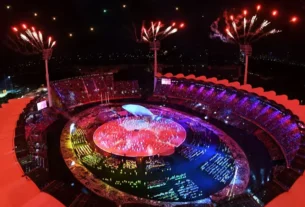The UEFA Champions League is the pinnacle of club football, a stage where the elite of European football clash for glory. With each new season comes anticipation, excitement, and the eagerly awaited group stage draw. This year, the Champions League has introduced a new group format designed to shake things up and enhance the viewing experience. With an expanded number of teams, a revised structure, and fresh dynamics, the 2024/25 season promises to be one of the most thrilling in recent history. Here’s an in-depth look at the new format and the results of the latest draw.
The Revamped Group Stage Format
The group stage of the Champions League has always been crucial, setting the stage for the knockout rounds that determine Europe’s best club. The format changes this year are intended to increase competitiveness, ensure fairer distribution of matches, and provide a more dynamic competition for fans and teams alike.
1. Expanded Group Stage
One of the most significant changes is the increase in the number of participating teams from 32 to 36. This expansion allows more clubs from a broader range of European leagues to compete, providing a more inclusive representation of European football. With more teams in the fray, the group stage will become more unpredictable and exciting, offering opportunities for lesser-known clubs to challenge the established giants of the sport.
2. New Group Stage Structure
The traditional format of eight groups of four teams each has been replaced by a single, larger group stage involving all 36 teams. Instead of the familiar home-and-away matches within fixed groups, each team will play eight games against different opponents. This new system ensures a more varied and competitive set of fixtures, as teams will face a diverse array of opponents rather than just three other teams repeatedly.
The revised structure also means that the stage will see a higher number of games, increasing the number of thrilling encounters and ensuring that each team’s journey is filled with different challenges. This variation is expected to provide more exciting football and keep fans on the edge of their seats.
3. Points System and Qualification
The points system remains consistent with the familiar win-draw-loss format. Teams earn three points for a win, one point for a draw, and none for a loss. However, the expanded number of matches means that teams will have more opportunities to secure points and position themselves favorably in the standings.
At the conclusion of the group stage, the top eight teams will automatically advance to the Round of 16. The teams finishing in 9th to 24th positions will enter a knockout round to determine the remaining eight spots in the Round of 16. This new qualification format introduces an additional layer of suspense and strategy, as teams must not only perform well but also be prepared for a potential knockout battle to secure their place in the knockout rounds.
4. Increased Flexibility in Scheduling
To accommodate the expanded format and ensure that teams are not overloaded, the Champions League will feature a more flexible scheduling system. This adjustment aims to address fixture congestion, allowing for better rest periods between matches. The revised schedule will help maintain a high level of performance and reduce the risk of player fatigue, ensuring that teams can compete at their best throughout the group stage.
The Draw: Teams and Groups
The draw for the new Champions League group format has generated considerable excitement among fans and analysts. Here’s a detailed look at the results and the intriguing matchups that have emerged from the draw:
Group A
- Team 1: Real Madrid
- Team 2: Manchester City
- Team 3: Napoli
- Team 4: FC Porto
Group A features two of the biggest names in European football: Real Madrid and Manchester City. Their clash is highly anticipated, given their recent successes and star-studded squads. Napoli and FC Porto add an extra layer of intrigue, with both teams capable of causing upsets and challenging the top two teams.
Group B
- Team 1: Bayern Munich
- Team 2: Barcelona
- Team 3: Ajax
- Team 4: Benfica
Group B is a star-studded lineup, with Bayern Munich and Barcelona set to face off in what promises to be a high-octane clash. Ajax and Benfica will be looking to make their presence felt and potentially disrupt the dominance of the two heavyweights. The group is expected to deliver thrilling football and intense competition.
Group C
- Team 1: Liverpool
- Team 2: Paris Saint-Germain (PSG)
- Team 3: Borussia Dortmund
- Team 4: Olympique Lyonnais
Liverpool and PSG are set to renew their rivalry in Group C, with both teams boasting formidable attacking prowess. Borussia Dortmund and Olympique Lyonnais will seek to challenge the top two teams and make a strong case for advancement. This group is likely to feature some of the most exciting and attacking football of the group stage.
Group D
- Team 1: Chelsea
- Team 2: Juventus
- Team 3: Inter Milan
- Team 4: Sevilla
Group D features a collection of elite clubs, including Chelsea, Juventus, and Inter Milan. All three have impressive histories in the competition and are expected to provide tough challenges for each other. Sevilla, known for their resilience and European pedigree, will aim to make a significant impact and potentially cause surprises.
Implications and Expectations
The new Champions League group format introduces several exciting dynamics that are likely to have a significant impact on the competition. The expanded number of teams and revised structure promise to make the group stage more unpredictable and engaging.
Fans can look forward to a wider variety of matchups and a higher number of high-quality games. The flexibility in scheduling will help ensure that teams maintain peak performance, while the new qualification process adds an extra layer of drama and suspense.
For teams, the revised format presents both opportunities and challenges. With more teams in the mix, there is a greater chance to showcase talent and secure a spot in the knockout rounds. However, the increased number of matches and the potential for a knockout round to qualify adds pressure to perform consistently throughout the group stage.
So…
The new Champions League group format marks a significant shift in Europe’s premier club competition, promising an enhanced experience for fans and players alike. With an expanded number of teams, a revised structure, and a more flexible scheduling system, the 2024/25 season is set to deliver an exciting and dynamic group stage. As the draw results reveal intriguing matchups and potential rivalries, fans can eagerly anticipate a season filled with top-notch football, dramatic moments, and the pursuit of glory.





